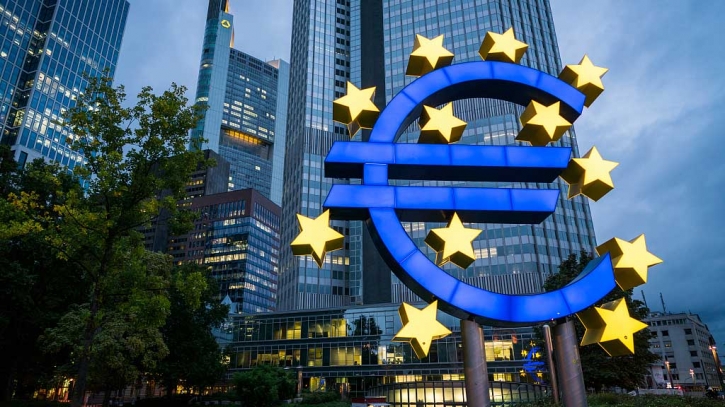Weaker euro poses threat to Bangladesh’s RMG exports
BI Report || BusinessInsider

European Central Bank headquarters in Frankfurt, Germany. Photo: Collected
The 27-nation bloc, European Union, remains the largest market for Bangladesh’s readymade garments for decades. This bloc accounted for 50.22 percent of Bangladesh’s total RMG exports worth over $42.61 billion in the just-concluded fiscal year of 2021-22, followed by the US 21 percent.
This over-dependence on a bloc now cast a shadow on export prospects as the euro, Europe's single currency, slumped to as low as $0.9998 on Wednesday, for the first time in almost 20 years, driven by rising recession fears in the EU area.
Euro was down almost 12 percent so far this year though it started 2022 on a strong note before the war in Ukraine increased prices of commodities, be they energy, food and steel, and the consequences were on the consumers.
Fazlul Hoque, former president of the Bangladesh Knitwear Manufacturers and Exporters Association (BKMEA), said the continued devaluation of the euro will fuel inflation and the prices of products, including garments.
“Either Europe will import less or bargain for price cuts with exporters to tackle the situation,” Hoque told Business Insider Bangladesh.
MA Jabbar, managing director of DBL Group, one of the country’s largest exporters, is also concerned about the weaker euro which can be a headache for the European Central Bank because it means higher prices for imported goods.
“We’ll be hit as consumption in Europe may go down because of higher prices,” Jabbar told Business Insider Bangladesh on Thursday.
How euro depreciation likely to affect Bangladesh’s RMG exports:
A weaker euro can be a headache for the entire bloc as many of their imported goods are priced in US dollars. So any fluctuation in the exchange rate affects the EU’s imports and Bangladesh’s exports as well.
For example, a buyer in the EU imports $110 million worth of garments from a supplier in Bangladesh. Considering the euro-$ exchange rate in 2021, the buyer had to spend 100 million euros to buy $110 million.
Now the euro has become equal to the dollar. So, a buyer in any of the EU’s 27 nation-blocs has to spend an equal amount of euros for buying the greenback. And, the ultimate pressure will be on the prices, exporters said.
























